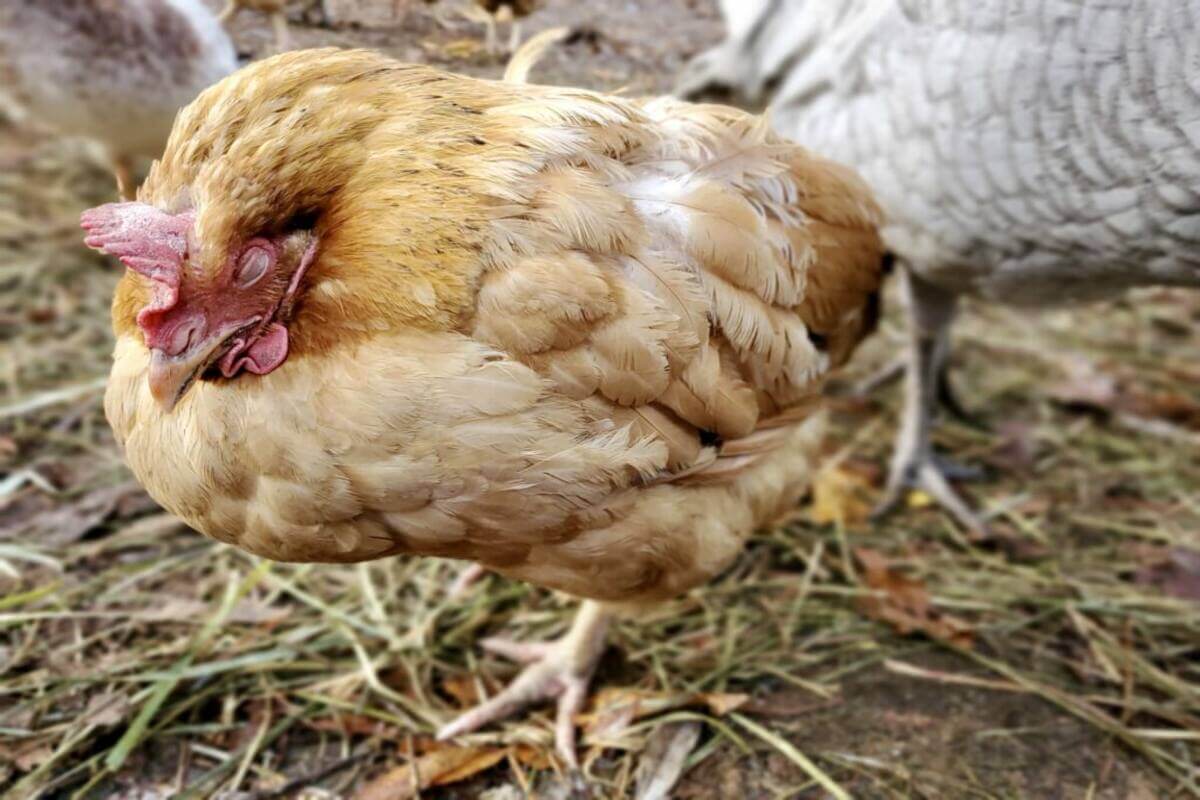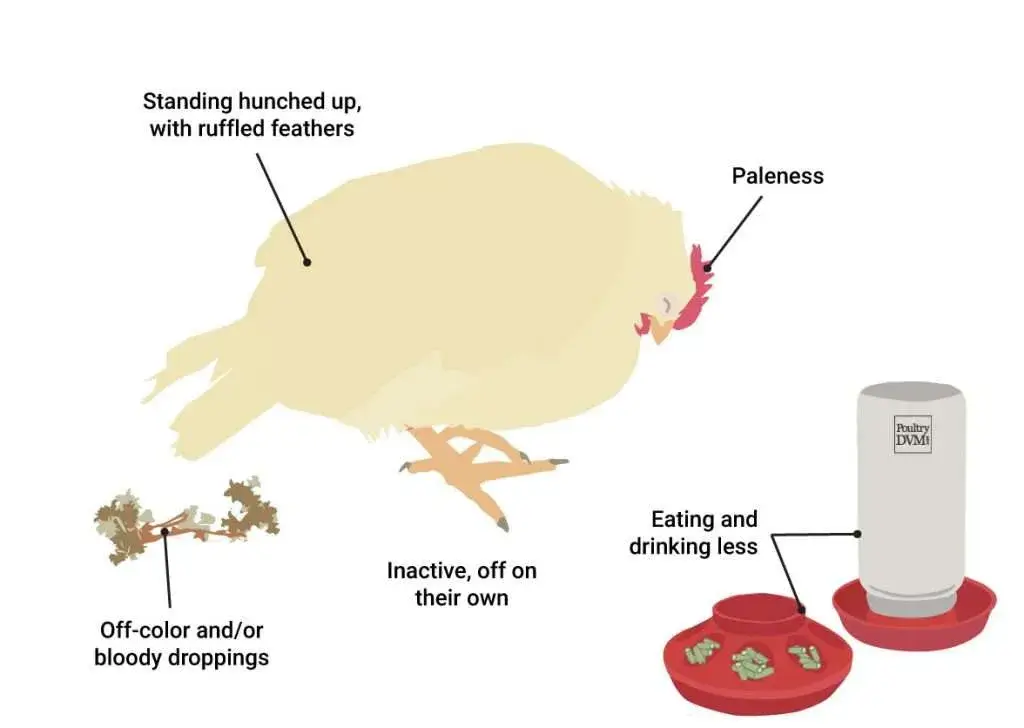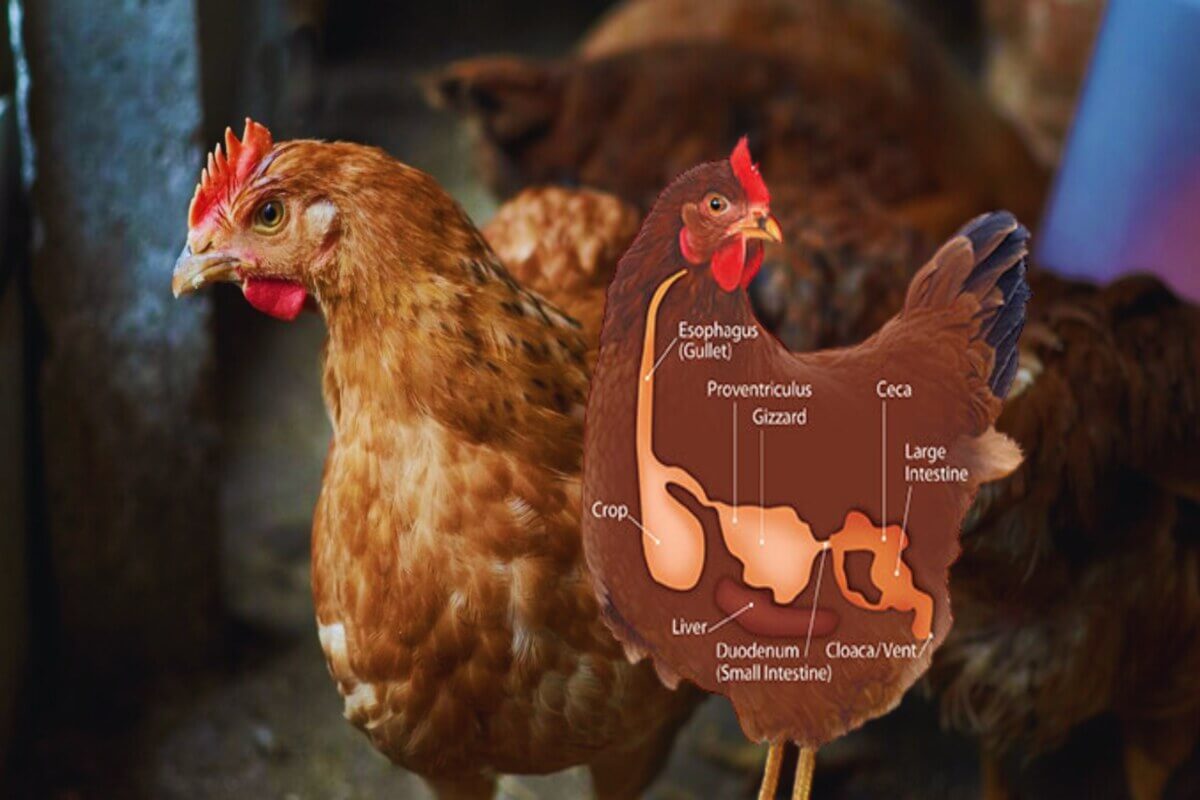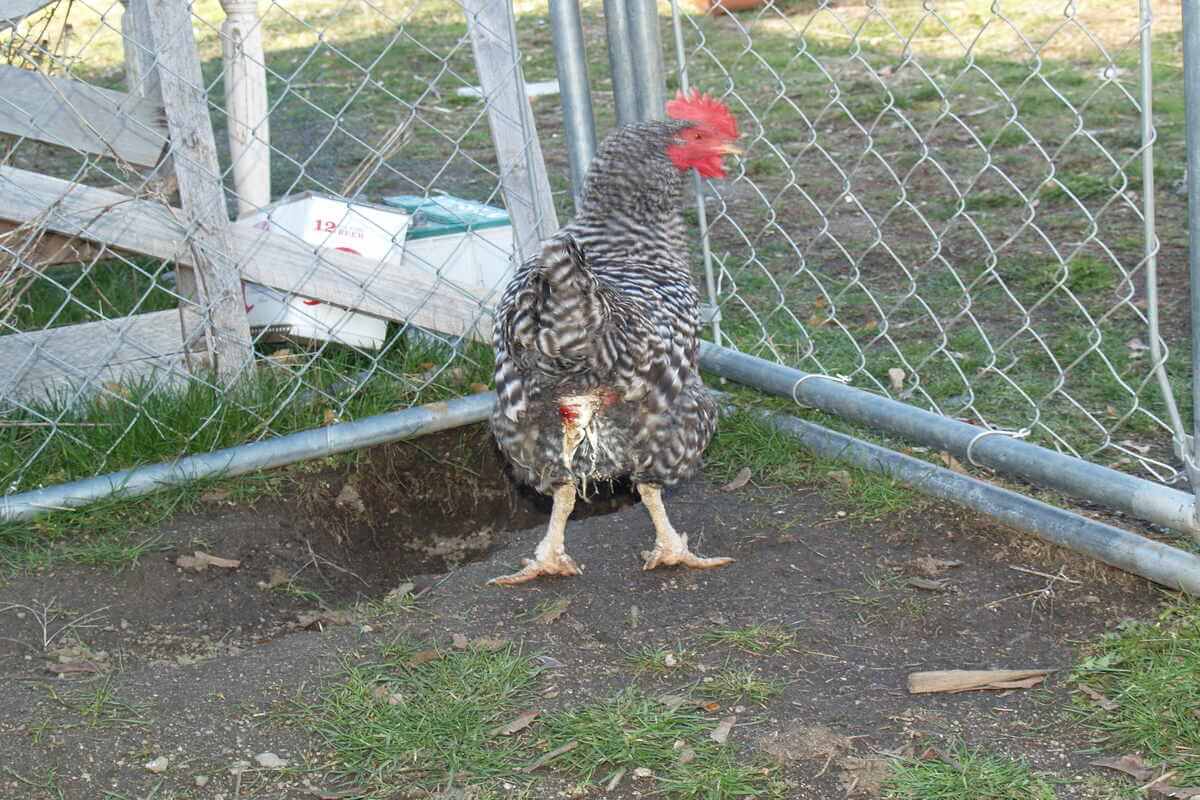Table of Contents
Coccidiosis in Chickens is one of the most common diseases in backyard and commercial poultry flocks around the world. This parasitic infection can spread fast and be deadly if left untreated in chickens. By understanding the causes, symptoms and treatment of coccidiosis, you can take proactive steps to protect your flock. This guide will go into detail on coccidiosis and how to manage it.
What is coccidiosis in chickens?
Coccidiosis is a parasitic disease caused by microscopic organisms called coccidia. These parasites invade the lining of the chicken’s intestines causing inflammation, poor nutrient absorption and sometimes fatal complications. Coccidiosis is most dangerous for young chickens who have no immunity but it can also affect adult birds under stress or in unsanitary conditions.
The Culprit: Coccidia Parasites
Coccidia are protozoan parasites that love warm, moist environments. They are transmitted through feces, contaminated food or water. Once ingested, the parasites invade the gut, multiply fast and damage the intestinal lining. This releases more infectious spores (oocysts) into the environment and spreads the disease.
Common Eimeria species that cause coccidiosis in chickens are:
Eimeria tenella
Eimeria acervulina
Eimeria maxima
Eimeria necatrix
Each species targets a specific part of the chicken’s gut and causes different symptoms and severity.
How affects coccidiosis in chickens?
Coccidiosis can wipe out your flock if left untreated. The parasites in the intestines disrupt nutrient absorption and weaken the birds making them susceptible to secondary infections. Severe infestations can cause serious health complications and even death.
Poultry Impact
The economic and emotional impact of coccidiosis on poultry keepers can be huge. Here are some of the effects:
Reduced Growth: Infected chickens grow slower due to poor nutrient absorption.
Lower Egg Production: Laying hens may stop laying eggs during an outbreak.
Higher Mortality: Young chicks are most susceptible to fatal outcome.
Increased Cost: Treatment, lost productivity and mortality can mean financial losses and these are your flock. You don't want to see your sweet backyard chicken's suffer.
Symptoms of Coccidiosis
Early detection is key to treatment. Look for:
Bloody or watery poop
Lethargy and weakness
Loss of appetite
Weight loss
Pale combs and wattles
Huddling or puffing up for warmth
Not all infected birds will have bloody poop so watch for subtle behavioral changes and other symptoms.
Diagnosing Coccidiosis (Confirming the Culprit)
To diagnose coccidiosis consult a veterinarian or a poultry diagnostic lab. Fecal testing is the most common diagnostic method where coccidia oocysts can be detected in the droppings. Post-mortem examination of dead birds can also reveal gut lesions specific to each Eimeria species.
Preventing Coccidiosis
Prevention is the best way to control coccidiosis. Good management can reduce the risk of outbreak and spread of the disease. Here are the key prevention measures:
Good Management
Avoid overcrowding by having enough space per bird.
Make sure ventilation is good to keep bedding dry and reduce humidity.
Sanitize the Coop & Brooder
Clean and disinfect coops, feeders and waterers regularly.
Change bedding often to minimize accumulation of feces and moisture.
Outdoor Exposure
Gradually introduce chicks to the outdoors to build natural immunity to coccidia.
Improving Hygiene
Prevent feed contamination by using covered feeders.
Provide clean water daily to reduce transmission.
Vaccination is another prevention method for coccidiosis. Many hatcheries offer vaccinated chicks for early immunity to the disease.
Coccidiosis Immunity
Coccidiosis in chickens is nasty but one of the best ways to manage it is to build your flock’s natural immunity. Building immunity to coccidia parasites is a gradual process that will reduce the impact of the disease over time. Here’s how to help your chickens build immunity:
Gradual Exposure to the Outdoors
Chicks raised in too clean an environment may not encounter coccidia early enough to build up a defense against it. Letting chicks gradually explore clean outdoor areas will allow them to encounter a low level of coccidia which will stimulate their immune system without causing severe illness. This is called controlled exposure and should always be monitored to not overwhelm young birds.
Coccidiostats in Feed
Coccidiostats are feed additives that slow down the growth of coccidia, giving chickens’ immune systems time to respond before the parasite takes over. Many starter feeds for chicks have coccidiostats in them but make sure you follow the manufacturer’s instructions and use these products correctly.
Rotating Pastures and Ranging Areas
For free range flocks, rotating pastures or ranging areas reduces the build up of coccidia oocysts in the environment. By moving your chickens to fresh areas you reduce their exposure to high concentrations of parasites and give their immune systems a better chance to handle infections.
Probiotic Supplements
A healthy gut microbiome will enhance your chickens overall health and ability to fight off infections including coccidiosis. Adding probiotics to their diet will support gut health and may improve nutrient absorption and immunity. Look for poultry specific probiotic products to ensure safety and efficacy.
Balanced Nutrition
Proper nutrition plays a big role in helping chickens fight off infections. Provide a balanced diet with the right mix of proteins, vitamins and minerals. Chickens lacking essential nutrients are more likely to get infected with coccidiosis because their immune system is compromised.
Stressors
Stress can weaken a chicken’s immune system and make them more susceptible to coccidiosis. Minimize stressors like overcrowding, sudden changes in environment or extreme weather conditions. Providing adequate shelter, clean water and enough space will go a long way in reducing stress and promoting health.
To support your chickens' overall health and immunity, consider incorporating Vital Nutrients: Supplemental Essential Vitamins & Trace Minerals For Chickens into their diet.
This supplement provides a comprehensive blend of essential vitamins and minerals specifically designed for adult chickens and ducks, promoting robust health and enhancing their natural defenses against infections like coccidiosis.
 Treating Coccidiosis
Treating Coccidiosis
If your flock has coccidiosis, act fast to minimize damage. Treatment usually involves anticoccidial medication and supportive care.
Isolate Infected Birds
Separate sick chickens from the rest of the flock to prevent spread of the disease. Put them in a clean, dry area with easy access to food and water.
Veterinarian Treatment
Consult a veterinarian for the right medication and dosage. Common treatments are:
Amprolium: An anticoccidial drug that inhibits coccidia from multiplying. Given through drinking water, it’s used for treatment and prevention.
Sulfa Drugs: Sulfamethazine and sulfadimethoxine are antibiotics for severe cases of coccidiosis.
Follow the recommended dosage and withdrawal period to ensure eggs and meat are safe for consumption.
Recommended Product for Coccidiosis Prevention
For a product to support coccidiosis prevention and treatment try the Chicken Coop Company’s Poultry Protector Spray. This product keeps your flock’s environment clean and healthy reducing the risk of disease.
Explore their full range of health products here: Chicken Health Products at The Chicken Coop Company.
Summary
Coccidiosis in chickens is a serious disease. Be aware and be proactive. Know the parasite, know the symptoms and take the right prevention measures. When outbreak occurs, treat and isolate fast to minimize loss and get your chickens back to health. Stay informed and buy quality health products to keep your flock healthy all year round.
FAQs
What kills coccidia in the coop?
The most popular treatment for coccidiosis is Amprolium, which blocks the parasite's ability to uptake and multiply. Treatment is usually administered by adding Amprolium to the chickens' water supply, however in some cases, where sick chickens aren't eating or drinking enough, the medication is given orally.
What is the fastest way to get rid of coccidia?
Is there a cure for coccidiosis in dogs? Coccidia can be cured with appropriate medications like sulfadimethoxine or ponazuril. Proper sanitation is also necessary to eliminate the infection from the surrounding environment. While resistant to most disinfectants, steam will destroy coccidia.
What product kills coccidia?
Smite KokziDes. Smite KokziDes is a powerful biocidal disinfectant which kills micro-organisms, bacteria and viruses. It contains Chlorocresol, a phenol-based lipid solvent which breaks through the protective triple outer layers found in many pathogens and parasites such as coccidial oocysts and worm eggs.
What kills coccidia in chicken coop?
Treatment for coccodiosis is with sulfa drugs or anticoccidial drugs. Amprolium is an anticoccidial drug available without a prescription and is a fast, highly effective treatment for coccidiosis. Use caution when using Sulfamonaides also know as Sulfas.






 Treating Coccidiosis
Treating Coccidiosis

